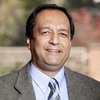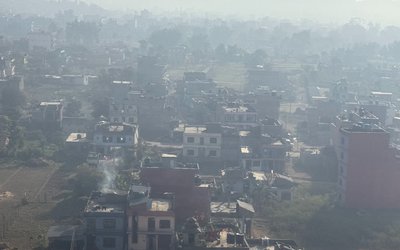In this new book Henry Kissinger keeps reminding President Nixon that it isMujib not Mujo( as in Sheikh Mujib-ur-Rahaman )of East Pakistan ( now Bangladesh). The book ( The Blood Telegram, Nixon, Kissinger, and a Forgotten Genocide published by Knopf, New York ) by Gary J Bass is filled with anecdotes of this kind. For many in South Asia, most of these anecdotes gleaned from the talks that Nixon secretly taped in the Oval Office in 1971 would be hilarious except that deadlyatrocities were being committed in East Pakistan with the involvement of Richard Nixon and Henry Kissinger.
The duo clearly supported West Pakistan’s military dictatorship that brutally quashed the results of the historic free election in East Pakistan at that time. This little known involvement of the President and his advisor in the birth of the new nation of Bangladesh was clearly overshadowed by the Watergate incident where the contents of the White House tapes of Richard Nixon proved crucial.
In this book author Gary Bass haseffectively mined these heretofore untapped resources of the White House tapes of the actual conversation of Nixon and Kissinger visa vi East Pakistan at that time. The findings are incredible. Nixon and Kissinger were told in no uncertain terms by their own diplomats (chiefly Archer Blood in Dacca, hence the title “Blood Telegram”) of a potential genocide by Pakistani military rulers at that time.But the President and his right hand man obviously chose to ignore this repeated warnings. In fact what the tapes make clear is that they stood staunchly behind the military rulers of West Pakistan . What was the reason for all this?
Nixon genuinely liked the Pakistani President General Yahya Khan, as compared to Indian Prime Minister, Indira Gandhi who both Kissinger and Nixon harbored a deep antipathy towards. But the book sheds light on another very important reason. Kissinger and Nixon were secretly trying to establish a historic meeting of US and China which would credit Nixon tremendously. The go-between man who would help arrange this meeting with Mao Zedung was to be the General Yahya Khan. And anything that came in the way ( like the East Pakistani democratic election results which showed Sheikh Mujib-ur- Rahamanhad won, much to the dislike of Pakistan’s generals) was in fact a mere irritation that had to be pushed aside for a greater cause. Amazingly, Nixon and Kissinger also secretly encouraged China to amass troops on the Indian border to scare the Indian government and illegally( the US government had voted against this) supplied US weapons to the Pakistani military. When the tragic slaughter of Hindu Bengalis took place in East Pakistan, it was clearly with the help of America’s devastating firepower.
As a result of this genocide in East Pakistan ( a tragedy apparently bloodier than Bosnia), about ten million refugees streamed into West Bengal in India. The Indian government was at its wits end trying to deal with this situation. It requested for foreign help, but what it received was a tiny fraction of its actual needs to help with the situation. Much to India’s credit, it did not close its borders to the Bengali Hindus who were fleeing their own countryfrom the marauding Pakistani soldiers.
Finally with the intervention of the Indian army and the BagladeshiMuktiBahiniliberation fighters ( at times the latter group sought their own cruel justice against the Paksitani soldiers), the city of Dacca fell which eventually lead to the birth of Bangladesh. It was a motely crew of generals who were in charge of the Indian army responsible for the attack. The Chief of the Indian army staff was the Parsi General SamManekshaw often pictured with a handlebar moustache. General Jacob Farz Rafael Jacob of Jewish origin and another high- ranking Sikh General worked together in fighting the Pakistanis.
What comes across very strongly time and again in the taped conversations is that Nixon and Kissinger were driven to do what they did not just by Cold War realpolitik but a bitter personal dislike for Indira Gandhi and India. And not unsurprisingly both Nixon and Kissinger gloss over this important ,“game- changing”tragedy in South Asia in the many books that they would separately write later on.

Buddha Basnyat MD
Buddha Basnyat, MD, MSc, FACP, FRCP, Director of the Oxford University Clinical Research Unit-Patan Academy of Health Sciences, Kathmandu.
- Altitude Sickness
- Feb 20, 2018
- Post-earthquake Nepal: The Way Forward
- Dec 13, 2015
- The Annapurna Sanctuary
- Nov 29, 2015
- Diarrhea at the Summit
- Nov 08, 2015
- Altitude Sickness ( AMS, HAPE, HACE)
- Oct 15, 2015















